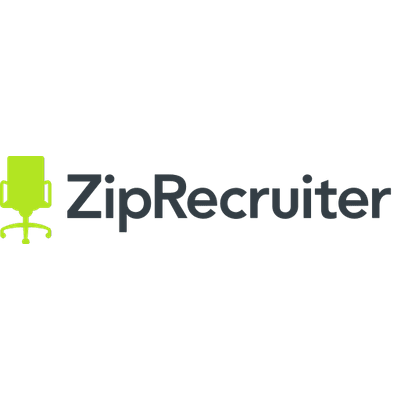In theory, it should be easy to answer the job interview question, “What is your greatest strength?” If you've done your interview prep–and of course you have–you’ve spent plenty of time reviewing your top skills, qualifications, and work experience.
But in practice, talking about what you’re good at can be tricky. Most of us are conditioned not to brag. It’s challenging to present your strengths in a way that doesn’t seem arrogant, falsely humble, or out of touch.
Want to do meaningful work, earn more, and enjoy life? See how we’re all creating momentum in the face of change and uncertainty.
To make sure you’re ready to answer this tough job interview question, it can help to know why employers ask questions like this. Then, you can formulate potential answers and practice delivering them until you feel comfortable.
If you are looking for a new job, start your search on ZipRecruiter. ZipRecruiter is free for job seekers and you can apply to jobs with a single click!
Discover Your Dream Job Find jobs near you and apply with 1 click! New jobs posted daily.
Why Do Employers Ask About Strengths?
Asking about strengths may seem unnecessary. After all, the interviewer has your resume in front of them. If they didn’t like what they saw, why would you even be in this job interview?
But employers ask about strengths for several reasons beyond just wanting to know about your skills and qualifications. They’re trying to get a sense of the following:
- Do you know your best qualifications and abilities? Answering the strengths question requires self-awareness and the ability to assess your proficiencies. Hiring managers use this question to find out whether you understand your top skills.
- Do your strengths match their requirements? Companies hire employees to solve problems. Interviewers want to know if your skill set is a match for their goals and needs.
- Will you be a good fit? The ideal candidate will have strengths that complement the team’s strengths and supplement their weaknesses. Employers ask about strengths to assess whether you’ll work well with your prospective coworkers. They also want to know if you’ll fit into the company culture.
How to Answer “What Is Your Greatest Strength?”
This job interview question is an opportunity to showcase your most valuable skills, abilities, and qualifications. To make sure you take advantage of this chance to impress the hiring manager, do the following:
Perform A Self-Assessment
Ask yourself a few questions:
- What are your most valuable work-related skills?
- How did you develop these abilities?
- How has your skill set evolved over time?
- How do you use these proficiencies to solve problems at work?
If you have time, you might also consider asking your current or former colleagues about your strengths at work. You might be surprised at the skills and abilities they highlight. (Plus, it’s always good to go into a job interview with a reminder that you’re a valuable teammate.)
Match Your Strengths To The Role
Take a look at the job description and any notes from phone screens or pre-interview research. How do your strengths match with the company’s needs and how would you use those strengths to solve their problems and achieve their goals?
Be Honest
Research from Checkster, a reference checking software company, finds that 78% of candidates lie during the job application process. But just because lying is common, doesn’t mean it’s acceptable–or likely to help you further your career.
Lying about your strengths can come back to haunt you in several ways:
- You could get caught in an inconsistency during the interview process and be dropped from contention.
- Your skills gaps might become apparent once you’re on the job, leading the company to terminate your employment.
- You might land the job and keep it–only to find out that you’ve finagled your way into a role that you don’t enjoy.
Join The Break Community
Use The STAR Technique
Human beings are wired for stories. We like narrative structure, cause and effect, and proof of concept. The STAR interview method helps you demonstrate, not just describe, your skills and abilities so that the hiring manager can visualize you using your proficiencies at the company.
STAR stands for:
- Situation (where you were working, what role you had, and any other factors involved)
- Task (the problem you solved)
- Action (what you did to solve the problem)
- Result (the outcome–bonus points if you can quantify it in terms of time, money, etc.)
“What Is Your Greatest Strength” Answer Examples
Your answers to this question will vary depending on your experience and qualifications, as well as the requirements of the job. But these sample answers can help you brainstorm your own.
Example 1
“My greatest strength is empathy. When I’m dealing with customer complaints, I’m able to really put myself in their shoes and understand how this issue is affecting them. As a result, I’ve been able to maintain my department's highest complaint resolution numbers for the past three quarters.”
Example 2
“I believe that my greatest strength is flexibility. I’m one of those rare folks who genuinely enjoys change, which is why I like working at startups like your company. You’re never in the same job for long, regardless of whether your job title stays the same. In my current job, I’ve been able to learn social media management, design work, and several project management systems. I love the chance to keep learning.”
Example 3
“My greatest strength is resilience. I bounce back from challenges and come away with new knowledge about my work, my team, and myself. My last employer underwent a major restructuring and I worked on three teams in six months. At one point, I was briefly assigned to assist the software development team and discovered that this was the place I wanted to build my career. I’ve spent the past few months taking classes, pursuing independent study, and earning certifications.”
List Of Strengths
Not sure which strengths to highlight in your next job interview? This list may inspire you:
- Attention to detail
- Collaboration
- Communication skills
- Creativity
- Discipline
- Emotional intelligence
- Empathy
- Entrepreneurial
- Flexibility
- Patience
- Problem-solving
- Resilience
- Teamwork
- Time management
- Work ethic
Mistakes To Avoid When Answering “What Is Your Greatest Strength?”
Again, the biggest mistake you can make at a job interview is to be less than honest. But assuming that you’re prepared to be forthright and that you’ve done your homework, it’s easy to avoid the other pitfalls of talking about strengths.
Bragging
Be positive and confident, not arrogant. Remember that you’re trying to help the hiring manager visualize you in the role, and that means coming across as someone who is enjoyable to work with. Avoid statements that rely on hyperbole, e.g., “I’m the best salesman in the world,” or that are difficult to back up.
Making Statements Without Offering Proof
The STAR technique helps demonstrate that you can do what you say you can do. It will also keep you from writing checks your skill set can’t cash.
Rambling
Keep your answers concise and to the point. Notice if you’re starting to speak quickly or stray from the story at hand. Take a deep breath when you need it and don’t be afraid of pauses. Ask for clarification when you need it.
Body Language Mistakes
Especially if you’re a nervous interviewer, it’s easy to send one message with your words and a very different message with your body language. Sit up straight, avoid fidgeting, and maintain an open and friendly posture. If you’re interviewing with multiple people, remember to address and make eye contact with each of them in turn.
Sticking To The Script
Practice answering this and other questions during your job interview prep, but don’t forget that an interview is a conversation. Be prepared to be flexible, listen to the interviewer, and adapt as the conversation unfolds. You’ll make a better impression and get a real sense of whether you connect with the hiring manager, as well.
Related: How To Answer “What Is Your Greatest Weakness?”
The Bottom Line
To talk about your strengths in job interviews with ease, remember that hiring managers want to hear about your talents, skills, and experience. By coming to the interview prepared to highlight your top qualifications, you’ll make their job easier, as well as improve the chances that you’ll land your next position.
Ready to find a job that builds on your strengths? Check out ZipRecruiter and find employers who are eager to hire applicants just like you.













